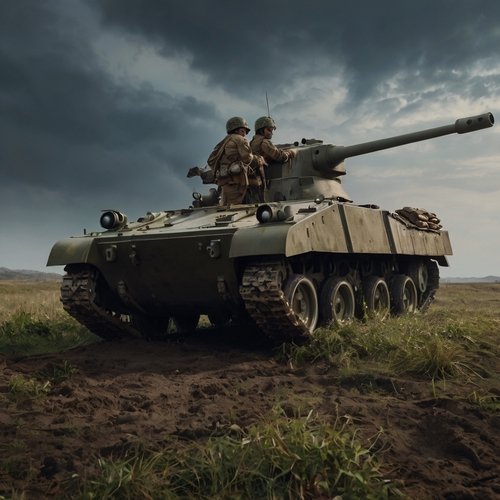Saudi Arabia Defence Market and The Recent Developments
The Saudi Arabia defence market size is growing as national defense provides protection for all albeit to varying degrees

The Saudi Arabia defence market size is growing as national defense provides protection for all albeit to varying degrees. It basically safeguards against foreign threats that could harm domestic property and lives. The Saudi Arabia defence market particularly protects individual freedoms and political rights. It also ensures the integrity of the domestic political structure while forming the basis for foreign policy that ideally benefits everyone even though to different extents.

Improvements in Domestic Defense Capabilities
Saudi Arabia defence market has recently made notable progress in its efforts to localize defense manufacturing. GAMI has implemented various policies and regulations to govern or promote the sector. It further boosts the competitiveness of domestic products. Historically among the biggest defense importers globally, Saudi Arabia is now prioritizing Vision 2030 goal to localize half of its defense production.
The yearly increase may not be difficult enough for the country to achieve its goal quickly. But the policies and investments along with collaboration initiatives in the country should result in rapid growth in the near future. An official pointed out that GAMI has introduced a single platform for military sectors. It offers a unified framework for the entire services provided to stakeholders. There is a strong focus on automating services and utilizing advanced technologies including data science and AI.
Ambitions to Build a Domestic Arms Production Industry
Saudi Arabia hosted the World Defense Show for the second time in 2024. This is an international exhibition aimed at highlighting the expansion of the Saudi defense sector. Even though it did not fully meet its objectives. While it may not fully accomplish its goals, Riyadh undeniably has the capacity to partially meet a central objective of Vision 2030 by decreasing its reliance on foreign arms.
The initiative which was developed by the Crown Prince MBS is focused on reducing its dependence on fossil fuel exports through economic diversification. Saudi Arabia aims to advance from its current rank as the 19th biggest economy to join the top 15 economies in the world.
Expanding domestic production particularly aims to establish its own industrial facility and minimize the risks linked to buying arms from countries that often tie sales to political conditions.
Saudi Arabia is also encountering difficulties in securing an additional forty eight Eurofighter Typhoon jets for combat use. Germany is said to have lifted its blockade only after Riyadh turned to France about potentially buying Rafale jets. The US government halted arm sales to Saudi Arabia for two years as it lifts the restriction only after a temporary ceasefire happened in the Yemen war. By developing its own arms industry, Saudi Arabia could strengthen its security in a region that remains volatile and unpredictable.
The country further aims to manufacture aircraft structures and ground equipment. It intends to carry out the final assembly of multiple systems on its own soil. That includes the testing and integration of sensors. It is likely that companies in Saudi will gain expertise in ammunition manufacturing. It can also set up local MRO facilities to service equipment for the national security forces. Riyadh also plans to develop local engineers as it recognizes their essential contribution to this bold vision.
It is still unclear if Saudi Arabia will success in achieving its ambitious target of allocating half of its arms budget to domestic spending. The country faces a tough road ahead in building its own production and technological capacities. That is considering its inexperience in these fields.
The Saudi Arabia defence market presents another obstacle owing to its sensitive nature. While foreign expertise can be applied to projects including highways or skyscrapers, it is generally not possible in the defense industry. This does not imply that its efforts are bound to fail. Even though it might not be able to build advanced weapon systems like tanks or combat aircraft but it could potentially produce small arms or armored vehicles. The country also possesses the financial resources and intellectual expertise to build a robust base for MRO.
What's Your Reaction?















.jpg)


